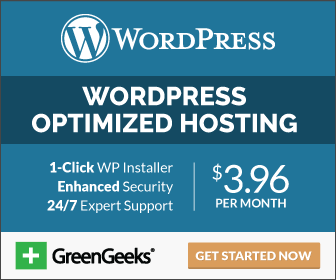In today’s digital age, where social media platforms and search engines dominate the marketing landscape, it’s easy to overlook the humble yet mighty power of email marketing.
Despite its age, email remains one of the most effective and versatile tools in a marketer’s arsenal, offering unparalleled reach, engagement, and ROI when executed strategically.
In this comprehensive guide, we’ll explore the ins and outs of email marketing and reveal how you can leverage its potential to drive meaningful results for your business.
Why Does Email Marketing Matter?
Email marketing is more than just sending promotional messages to a list of subscribers. It’s about building relationships, nurturing leads, and delivering value to your audience in a personalized and meaningful way.
Unlike other marketing channels, email allows you to connect with your audience directly in their inbox, where they’re more likely to engage with your content and take action.
Key Benefits of Email Marketing
Reach and Engagement: With billions of active email users worldwide, email marketing offers unmatched reach and engagement potential. Unlike social media posts, which can get lost in a crowded feed, emails have a higher chance of being seen and opened by your audience, leading to higher engagement rates and conversion opportunities.
Personalization and Targeting: One of the greatest strengths of email marketing is its ability to deliver personalized and targeted messages to specific segments of your audience. By leveraging data such as demographics, preferences, and past behavior, you can tailor your emails to resonate with each recipient individually, increasing the likelihood of conversion and retention.
Cost-Effectiveness and ROI: Compared to traditional advertising channels such as TV, radio, and print, email marketing is incredibly cost-effective and offers a high return on investment (ROI). With minimal overhead costs and the potential for significant revenue generation, email marketing provides excellent value for businesses of all sizes.
Automation and Scalability: Thanks to advancements in marketing automation technology, you can streamline and scale your email marketing efforts with ease. Automation allows you to set up email campaigns, drip sequences, and workflows that deliver the right message to the right person at the right time, without manual intervention, saving you time and resources while maximizing efficiency and effectiveness.
Best Practices for Email Marketing Success
Build a Quality Email List: The foundation of any successful email marketing campaign is a quality email list composed of engaged and interested subscribers. Focus on growing your list organically through opt-in forms, lead magnets, and incentivized sign-ups, and avoid purchasing or renting email lists, which can harm your deliverability and reputation.
Segment Your Audience: Not all subscribers are created equal. Segment your email list based on demographics, interests, behavior, and lifecycle stage to deliver targeted and relevant content to each segment. Personalize your messages based on segment-specific preferences and pain points to maximize engagement and conversion rates.
Craft Compelling Content: Content is king in email marketing. Create compelling and value-packed content that educates, entertains, and inspires your subscribers. Use attention-grabbing subject lines, clear and concise copy, eye-catching visuals, and persuasive calls-to-action (CTAs) to encourage engagement and action.
Optimize for Mobile: With the majority of email opens now occurring on mobile devices, it’s essential to optimize your emails for mobile responsiveness. Ensure that your emails render correctly on all screen sizes and devices, with easily clickable links and buttons and streamlined content that is easy to read and navigate on small screens.
Monitor and Measure Performance: Regularly monitor and measure the performance of your email campaigns using key metrics such as open rates, click-through rates, conversion rates, and unsubscribe rates. Use A/B testing to experiment with different subject lines, content formats, and CTAs to identify what resonates best with your audience and optimize your campaigns for maximum effectiveness.
Conclusion
In conclusion, email marketing remains a powerful and indispensable tool for businesses seeking to connect with their audience, drive engagement, and achieve their marketing goals.
By focusing on personalization, targeting, automation, and delivering value-driven content, you can unlock the full potential of email marketing and drive meaningful results for your business.
Embrace the power of email marketing, and watch as it becomes a cornerstone of your marketing strategy, driving growth, revenue, and success for years to come.






























